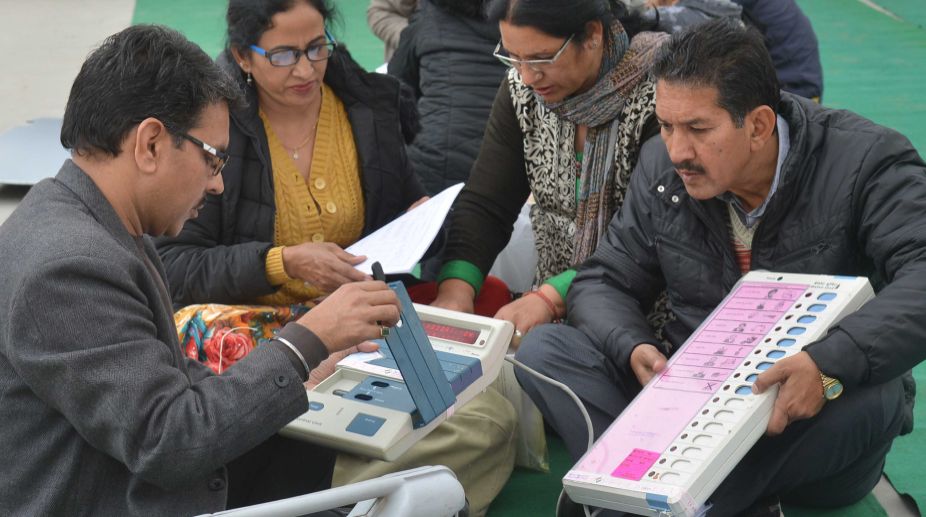Police nab illegal liquor supplier in South-West Delhi
Deputy Commissioner of Police (South-West) Surendra Choudhary stated that the arrest was made by the Anti-Narcotics team of the South-West District.

Representational Image (Photo: AFP/File)
By calling for an EVM ban, losers in the just concluded Assembly elections are only deluding themselves. The Election Commission of India, instead of dismissing calls of the Bahujan Samaj Party chief Mayavati and Delhi Chief Minister Arvind Kejriwal questioning the reliability of the Electronic Voting Machines by stating they are infallible and tamper proof, should have brought out the voter-verified paper audit trails (VVPATs) introduced at random in 20 constituencies, counted them to validate the EVM count, and dispelled all doubts for the future. VVPAT allows a voter to print out his vote which is dropped in a ballot box and kept sealed. To claim that the EVMs manufactured by the public sector Bharat Electronics and the Electronic Corporation of India, the two suppliers to ECI, cannot be tampered with, is not true. Not so long ago a Hyderabad technologist procured one EVM of the ECI from Mumbai and demonstrated in a television show how it could be hacked. Instead of accepting the reality, ECI launched a witch-hunt against the technologist. The integrity of Indian EVMs is derived from the fact it has just a one-time programme built into it, like a calculator, and it is not networked. For a huge country like India having the world’s largest electorate, EVMs are a necessary tool to facilitate timely elections. The ECI has close to two million EVMs. When elections are called, a computer makes randomised selection of which machine should be sent to which constituency as a first step to avoid tampering. As soon as the final candidate list is out, which is about two weeks prior to polling date, the machines are tested in the presence of the candidates or party agent, and their signatures obtained in a certificate that the EVMs are in order. On polling day, a mock polling for an hour is conducted to see all the buttons are working properly and not rigged.
A decade ago Subramanian Swamy, then president of the Janata Party, organised an international convention on the use of electronic voting machines in Chennai. Among the participants were scientists and psephologists, including GVL Narasimha Rao, present national spokesman of the BJP, who presented his seminal book, Democracy at Risk, Can We Trust Our Electronic Voting Machines? One of the positive outcomes of the international convention was the Supreme Court ordering the ECI to allow demonstration of hacking an EVM before its technical committee then headed by the late Professor Inderesan, former director of Madras IIT. When the demonstration was progressing and finding it was succeeding, he walked out. The Supreme Court eventually ordered the ECI to incorporate VVPAT in all its EVMs and the ECI has given an undertaking to have them ready in the 2019 general election. It is left to the Narendra Modi government to release adequate funds to the EC to enable it achieve the target.
Advertisement
Advertisement